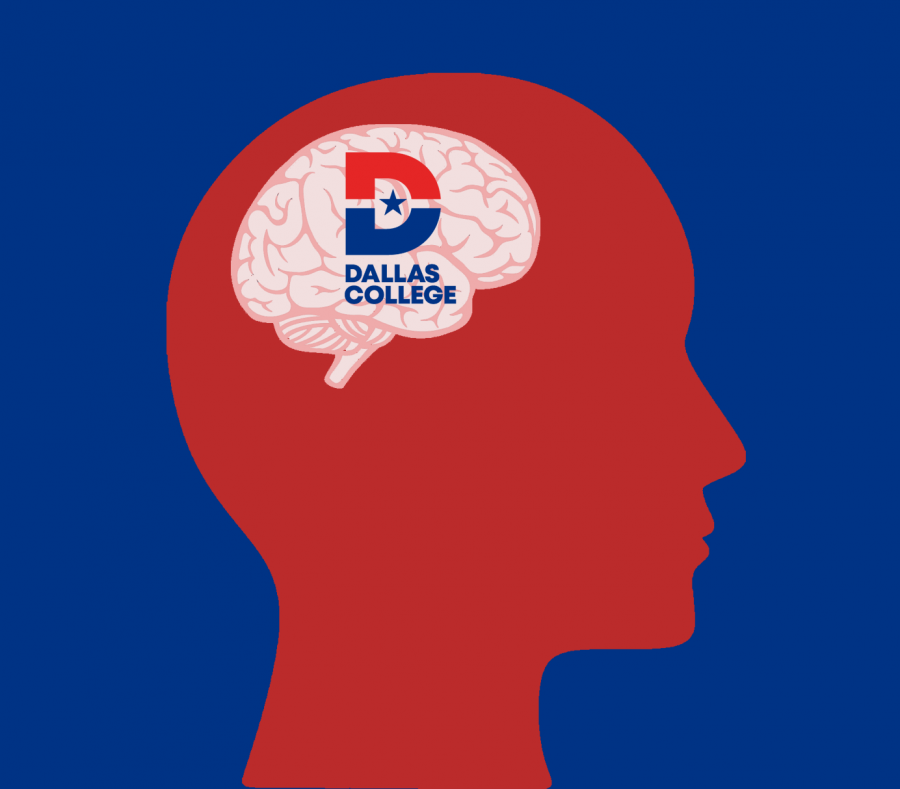Dallas College hosts virtual mental health symposium
February 5, 2021
Dallas College Health Services hosted a virtual event during the Dallas College Health Symposium Dec. 3, which included multiple presentations on different areas of mental health.
Adam Lesser, the deputy director for implementation and training at the Columbia Lighthouse Project, in his symposium presentation about suicide, said: “[Suicide] kills more Americans than car crashes, more people across the world than natural disasters, war and homicide combined, more soldiers than combat. It is the No. 1 cause of death in teenage girls across the globe.”
At the end of 2015, more than 5 million Texan adults suffered from a form of mental illness, according to Mental Health America. There were over 11,000 suicide attempts in 2017, and as a result 3,800 people in Texas died.
Lesser said the Columbia screener, which was developed by an institute of mental health study, has a total of six questions used to assess people who may need urgent assistance. He said: “Columbia is actually reducing suicide, reducing the workload of those who are in the field of mental health and reducing the liability of not asking anything or asking the wrong questions.”
Lesser covered multiple scenarios showing people suffering from mental illness. These examples show signs to look for so people know how to help. One example he used was Dylan Klebold, one of the Columbine shooters. Klebold wrote about suicide in his journals about five times, and wrote that he felt like an outsider.
Marcellina Melvin, the senior director of health equity strategy with Meadows Mental Health Policy Institute and the keynote speaker of the event, said, “Collective trauma is a traumatic event that affects a large group of people, and it can be things like a plane crash, a natural disaster, mass shootings or a pandemic.” There is not always comparable mutual trauma, she said. Individuals can be influenced within communities and handle the stress of trauma differently.
Dr. Adlai Charles, a faculty member and counselor at Cedar Valley Campus, talked about strategies to best handle stress.
Charles was joined by Dr. Robin Washington-White also from Cedar Valley Campus. Together they presented “S.A.V.E.R.S.,” each letter standing for techniques to help reduce stress: Silence, Affirmations, Visualization, Exercise, Reading and Scribing. Charles said, “It is very important that you have strategies, basically to save your life.”
When presenting “Silence” he recommends implementing meditation or prayer in the morning before starting your day. “Relax your mind and calm your body, allow all of your stress to melt away,” he said.
Charles spoke about “Affirmations” and using them to replace negative self talk with positive statements.
Next he spoke about “Visualization.” Charles told viewers to imagine themselves enjoying life, smiling and laughing.
Washington recommended saving inspirational quotes and videos to look back at when you need something positive to visualize. “You want to focus on watching videos that are uplifting and inspiring,” she said.
Charles began to list his favorite “Visualization” tools which included art, videos and quotes.
After speaking about his tools, Washington introduced “Exercise.” Washington said exercise plays an important role in lessening feelings of stress. The pair spoke about their favorite exercise and apps to improve physical well-being.
Next they moved on to “Reading.” Charles said reading can help build analytical thinking skills, help to de-stress and bring inner peace and tranquility. “It is very important to keep filling yourself with positive reading material, ” Washington said.
After discussing their favorite reading materials they ended the presentation with “Scribing.” Washington recommended viewers write about their goals, what they were grateful for and accomplishments. “Writing or journaling is a great way to process your thoughts and reflect on your life and will help you reduce stress,” she said.


